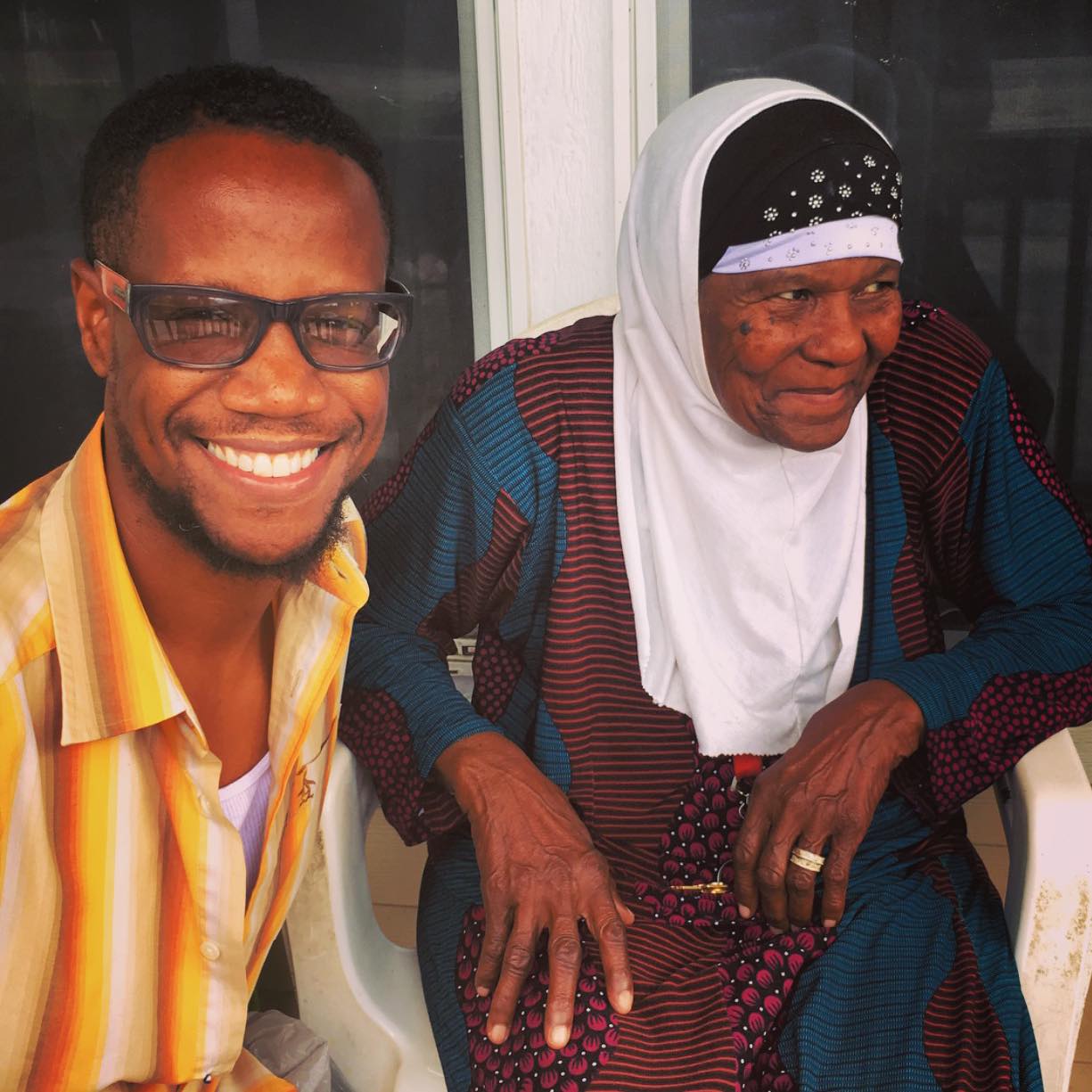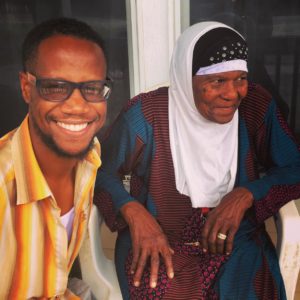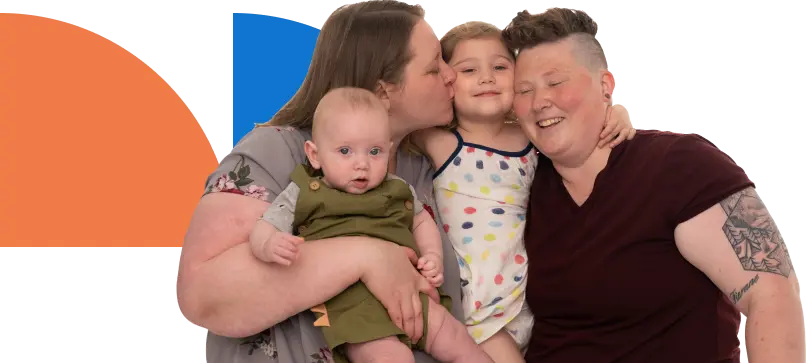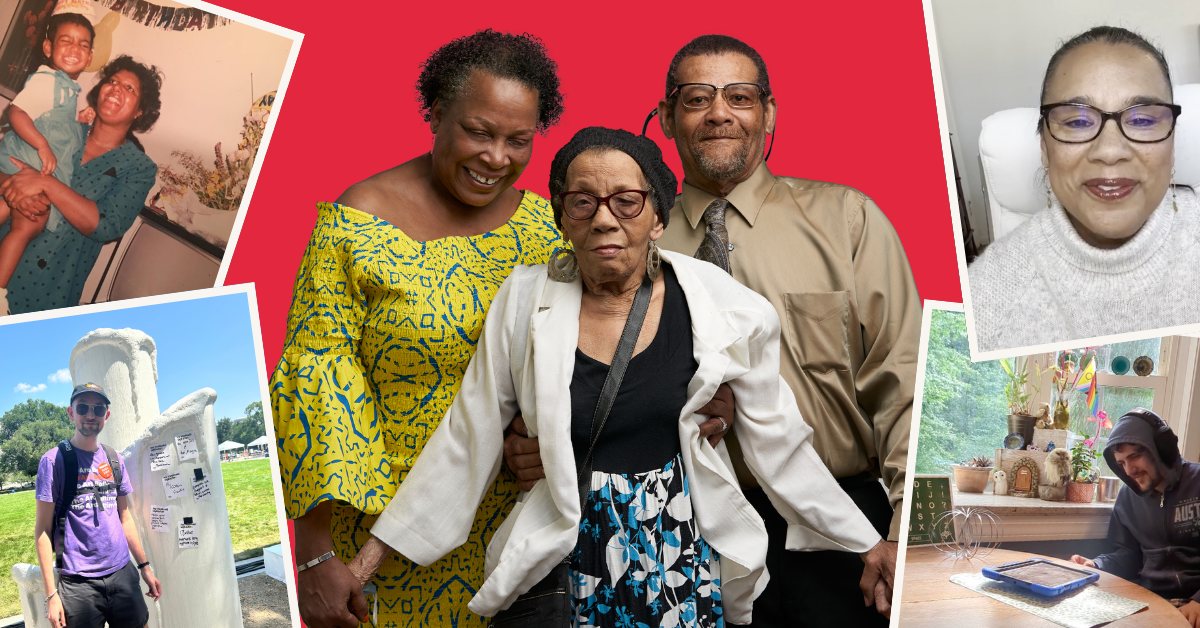
We’re so excited to welcome Malcolm Harris as our new California Campaign Manager. Malcolm brings a wealth of deep on-the-ground worker organizing experience to our campaign, informed by his experiences of care in his own family. Check out our Q+A with him to learn how he came to our work, his personal connection to care, and why he thinks that organizing around care is so essential.
What drew you to Caring Across, and what does our work mean to you?
What drew me to Caring Across was the focus on home care and family care. I have organized a lot of home care workers across the country and here in California, and I’m very familiar with the deep organizing needs of home care workers – they need stronger protections, higher wages, and expanded benefits.
On a more personal level, home care has become, especially in the past year, the de facto job for many of my relatives, especially my younger relatives in their 20’s and 30’s who need to take care of their parents or grandparents as my family ages. My cousin, who is in his 30’s, cares for my aunt, and relies on home care work as a relatively steady source of income. But he has his own health issues, and even though he is doing care work himself, he has to rely on the state for benefits to take care of his own health. I see working class folks, and Black and Brown folks, overrepresented in home care jobs, and when you take those jobs there’s the real possibility you’ll end up losing your own benefits while you’re taking care of the health of those you love.
The LA Black Workers Center did a study that showed that 50 percent of Black people in the LA area were underemployed or underemployed at any given time. Underemployment, in this case, means that people have to hustle multiple mediocre jobs to create one decent salary. Home care is an easy job to get when you can’t get anything else – it’s the only game in town for a lot of folks. But in a state like California where the cost of living is so expensive, these jobs just don’t create the opportunity that working families need to be able to live, especially in high cost cities like LA, San Francisco and Oakland.
We need to make sure that home care can be a career, not just a job, and that means building opportunity for home care workers and ensuring equity, both for the person receiving care and the caregiver themselves.
What is your new role, and what are you most excited to dig in to?
I am the new California Campaign Manager, and I’m working on building a campaign around how we create new approaches to what family care looks like in California by reimagining our systems in partnership with key community and advocacy organizations and caregivers on the ground.
Some key questions I’ll be working to answer:
- How can we combine home and community care, paid family leave, and childcare to create one smooth, operational system that works for all of us?
- How do we create smoother ways to make sure that resources are available for our aging community, while creating real benefits and career opportunities for people who are caregivers themselves?
- How can we make sure that families whose caregivers may be formerly incarcerated, or dealing with immigration status, are able to be paid for the care they provide for their loved ones
- How can we create statewide policies that will be a model for what care can look like for the rest of the country?
I’m really excited to be on the forefront of answering these questions. I’m from the Bay Area and I live in South LA now, but it’s been really clear over the years that my family has all been displaced from the Bay Area and now mostly live in the Sacramento area, where housing is more affordable and there are more opportunities for jobs. Creating real career opportunities for family care would help to stabilize and maintain communities for caregivers and folks receiving the care, which is an absolutely necessary service and system for our communities, and I believe would reduce the displacement so many people in our communities face.
What is your experience with care, and how did it bring you to do this work?
I’m a first generation Californian, and I’m the oldest of six. My parents and grandparents came from Texas and Louisiana, so I grew up around a bunch of Southern folks. When I was younger, I watched my grandmother care for my great grandmother. My grandmother had a 5th grade education, and became a CNA and was a home care worker for a variety of family members and people in the community for decades. She’s 91 now and was still doing home care work up until five years ago. I’m anticipating that she’ll come to stay with me in the next year or so, so that I can help take care of her.
I’ve already had experience caregiving myself – my mother had a very debilitating accident when I was 25, and I took her and my brothers into my home and took care of her and of my brothers while she was in the hospital. All of that was unpaid work.
Now that I’ve become more aware of organizing around home care and have seen that those are the career options my family members have available to them, I’ve observed my family members having to take care of other people in our family. This is something that naturally happens in my community and the community I grew up in – you take care of your family, you take your family into your house, and it’s not something you get paid for but it’s something you just do.
What kind of work have you done in the past?
I’m a California native, born and raised! I started off as a community organizer here in LA, and worked on addressing a variety of community issues, especially in South-Central LA. My work there focused mostly on organizing Black and Brown folks and building power for working communities, especially around youth-related issues and around creating stronger protections for Black communities in particular.
Since then, I’ve been a long-time SEIU organizer, both in the international and local chapters. My specialty in my work at SEIU is working on how we can build coalitions by bringing diverse communities together around common issues to reach common objectives.
My work has really been around communities that I grew up in. I know that if we can build a system that addresses the systemic issues that we deal with in Black and Brown communities, then everyone will benefit. These stabilizing community wins and policy changes will really help everyone.
What do you like to do outside of work?
I love any physical activity, especially walking and swimming. I also love to travel – as you can tell, I’m a very opinionated person, so I love to travel to places and share my opinions! I mostly do a lot of traveling in Latin America. I also do a lot of reading – I’m currently reading Homegoing by Yaa Gyasi.




